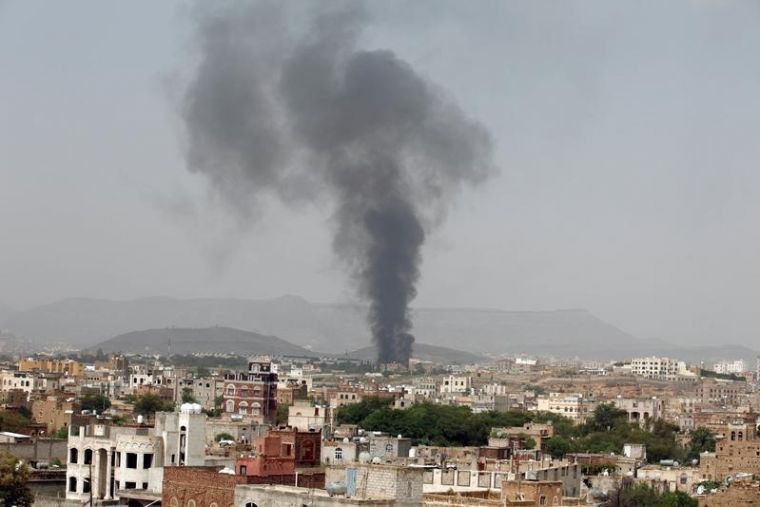The 'world's worst humanitarian crisis' is not Syria or Iraq. Why do we barely hear about it?

There are so many terrible things happening, just in the Middle East, that it's easy to tune out. The ongoing carnage in Syria, persecution of Christians in Egypt, the seemingly never-ending cycle of violence in Israel-Palestine, on and on it goes.
But there is another crisis that desperately needs our attention. The people there need us not to turn away. A rumbling civil war with numerous violent flashpoints has tipped over into a full-scale humanitarian crisis, with hunger stalking millions of people.
The place is a small country, adjacent to Saudi Arabia, that few of us will ever have visited – Yemen.
The current war there has been going on since 2011. I first wrote about it for Christian Today 18 months ago having been alerted to the horrific scenes by dogged and determined journalists following a story which was far from the headlines.
In the intervening period, Yemen has begun to seep into the public consciousness, but compared to the blanket media coverage given to Syria, it has received precious little attention. This has to change. The country is starving to death – not because of natural conditions, but because of the war that has prevented food and medicines from reaching those who need them most.
As part of an appeal by the Disasters Emergency Committee we learned that: 'Almost 19 million people in Yemen – 70 per cent of the population – are now in need of humanitarian assistance, including 10.3 million people who are in acute need. Malnutrition is widespread and water scarce.'
These are astonishing statistics. Ten million people are in acute need of food. That's as many people as live in Maine, New Hampshire, Rhode Island, Montana, Delaware, South Dakota, Alaska, North Dakota, District of Columbia, Vermont and Wyoming put together. It's twice the population of Scotland. Civilians have been killed, there are reports of human rights abuses on both sides and the prospects for any end to the fighting look slim.
Why is this happening? Like in any civil war, there are competing narratives on either side. The fundamentals are fairly straightforward, though. The internationally recognised government of Yemen, headed by Abd Rabbuh Mansur Hadi, is fighting a group of rebels, known as the Houthis. Yemen is a majority Sunni country and the Houthis are Shia. The extent to which the Houthis are supported by Iran is debated, though there is clearly backing from the region's Shia powerhouse.
What isn't up for debate is the coalition of forces which has assembled behind the deposed leader. The military might of the Sunni kingdom of Saudi Arabia heads a coalition of Arab countries that is attacking the Houthis. Behind the war machine of the Saudis, as ever, is support from the USA and the UK.
The situation is changing rapidly and there are other factors in play – such as the increased opportunity the chaos has given to Al Qaida affiliated groups in the vacuum.
IRIN news now reports that things in Yemen could be about to go from bad to catastrophic. The port of Hodeida is under Houthi control. With around 70 per cent of the country's food and supplies coming through there, it's impossible to overstate its importance. 'It would be catastrophic, and the impact would be felt immediately,' said Caroline Anning of Save the Children. 'Hodeida is one of seven provinces already on the brink of famine, and an attack could trigger it.'
Despite the vast numbers of people teetering on the brink of starvation, Yemen has barely made an impression on electoral politics in the UK or US. British Aid agencies are fighting to get attention for the crisis, though. Christian NGO Tearfund has described Yemen as the 'world's worst humanitarian crisis'. Meanwhile, Oxfam says: 'Fighters in the Yemen war and their international backers are wilfully pushing the country to the brink of famine.'
There appears to be little appetite for a quick resolution. The urgency of the humanitarian situation seems to be having little effect on pushing the crisis up the media or diplomatic agenda.
Oxfam is calling for action from the UN. 'In order to save the lives of millions of starving people, Oxfam is urging the United Nations Secretary General to pressure all parties to the conflict to resume peace talks, to reach a negotiated peace agreement and improve the economic situation in the country,' it says. As for further practical solutions, 'All land, sea and air routes to Yemen [must] remain open and for attacks targeting military objects related to supply routes and infrastructure to not disproportionately affect civilians in accordance with International Humanitarian Law.'











